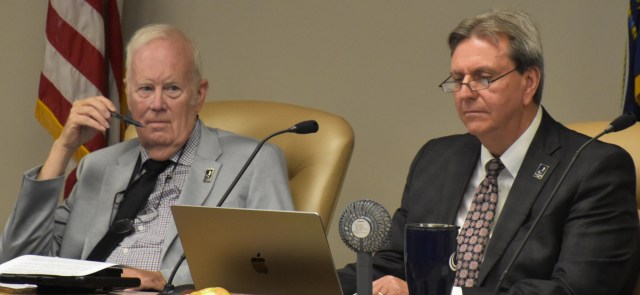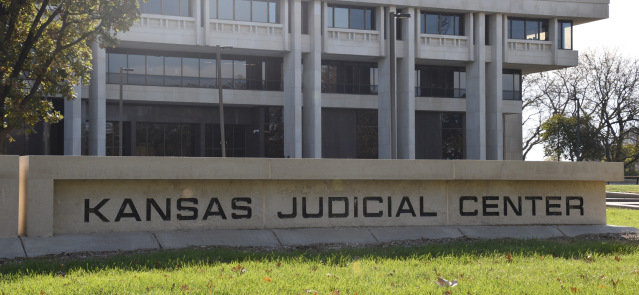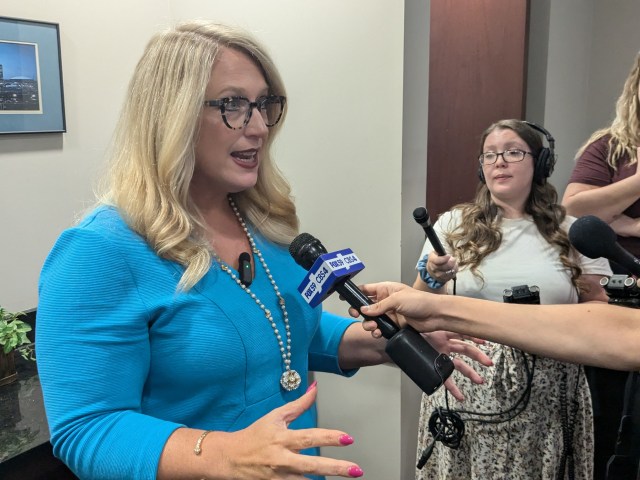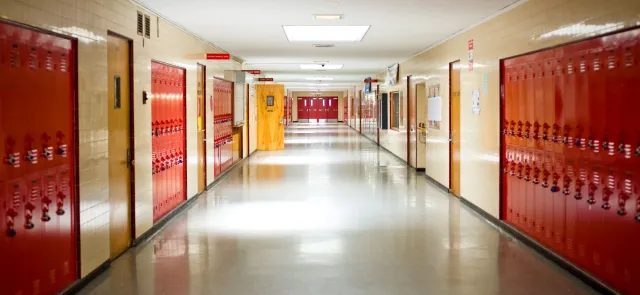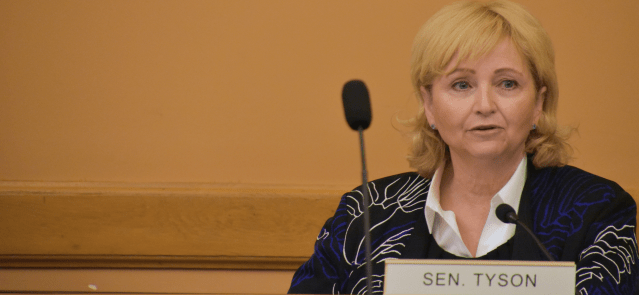A growing number of parents across Kansas are in favor of their children attending technical colleges or gaining job skills via apprenticeships as opposed to obtaining bachelor’s degrees, according to a study presented to the Kansas State Board of Education on Tuesday.
Kristin Brighton, representing Manhattan-based marketing firm New Boston Creative, presented the findings from a recently conducted “parent perception” survey. The study was a collaboration between New Boston Creative and the state Board of Education..
Brighton, vice president of the Manhattan-Ogden School Board, contrasted those results with a survey distributed to parents by numerous K-12 school districts in 2019. That survey netted around 19,000 respondents, while the spring 2024 survey collected responses from roughly 5,000 parents.
The survey asked parents a set of questions related to postsecondary plans and how they would define success for their eldest child, age 18 or under. The results showed shifting perceptions related to postsecondary plans in the five years since the first survey. For instance, the number of parents hopeful their child would go straight from high school to a four-year bachelor’s degree program dropped to roughly 51% from the 62% favoring the four-year degree in 2019.
“That’s a very significant change,” Brighton said.
The number of respondents reporting that they would be “very happy” to see their child attend technical college rose to 28.7% from 17.1% in 2019. Additionally, 5.5% of those surveyed said they would like to see their child enter an apprenticeship program — up 2.3% from the initial study.
The percentage of parents who thought their child would enroll in a university after high school graduation dropped to 44% from 52% in 2019.
Brighton also launched the HirePaths marketing campaign aimed at helping parents navigate postsecondary career exploration for their children. The goal of the program, per board documents, “is to retain Kansas youth in the state after the completion of their formal education.”
Brighton added that she’s previously worked closely with the Manhattan Area Chamber of Commerce.
“The business community was really feeling like we needed different skills in our next generation of workers in order to have a successful Kansas economy,” she said.
Brighton said the Department of Education and other state agencies have made noticeable strides in revamping career and technical education programs in K-12 school districts, but not enough has been done to get the word out to parents.
“If we don’t get tuned into all these new opportunities and change the public perception that the only way to be successful in the United States and Kansas is to have a four-year college degree, then all of these new efforts are never going to be successful,” she said.
Board member Ann Mah, District 4, said she wasn’t too surprised by the survey’s findings, adding that parents she’s spoken with have indicated they are more open to seeing their children explore alternative career paths that are not dependent on the competition of a four-year degree.
“The survey was pretty well in line with what we were thinking in terms of more kids going to tech or community colleges,” she said.
Board member Danny Zeck, District 1, questioned the overall percentage of those surveyed since 5,000 responding parents represent about 1% of the 450,000 students in Kansas.
“So how do we really know that this data really means much?” he asked.
According to her PowerPoint, Brighton attributed the marked dip in respondents to “survey fatigue” and districts not distributing the survey to parents.
“But frankly, you don’t need nearly that many people to have a good survey,” Mah said.
The 2024 study concluded that parents have developed a more positive perception of apprenticeships and technical training — as well as cultivated positive views of skilled trade careers.
Matt Resnick is a statehouse reporter at State Affairs Pro Kansas/Hawver’s Capitol Report. Reach him at [email protected].
